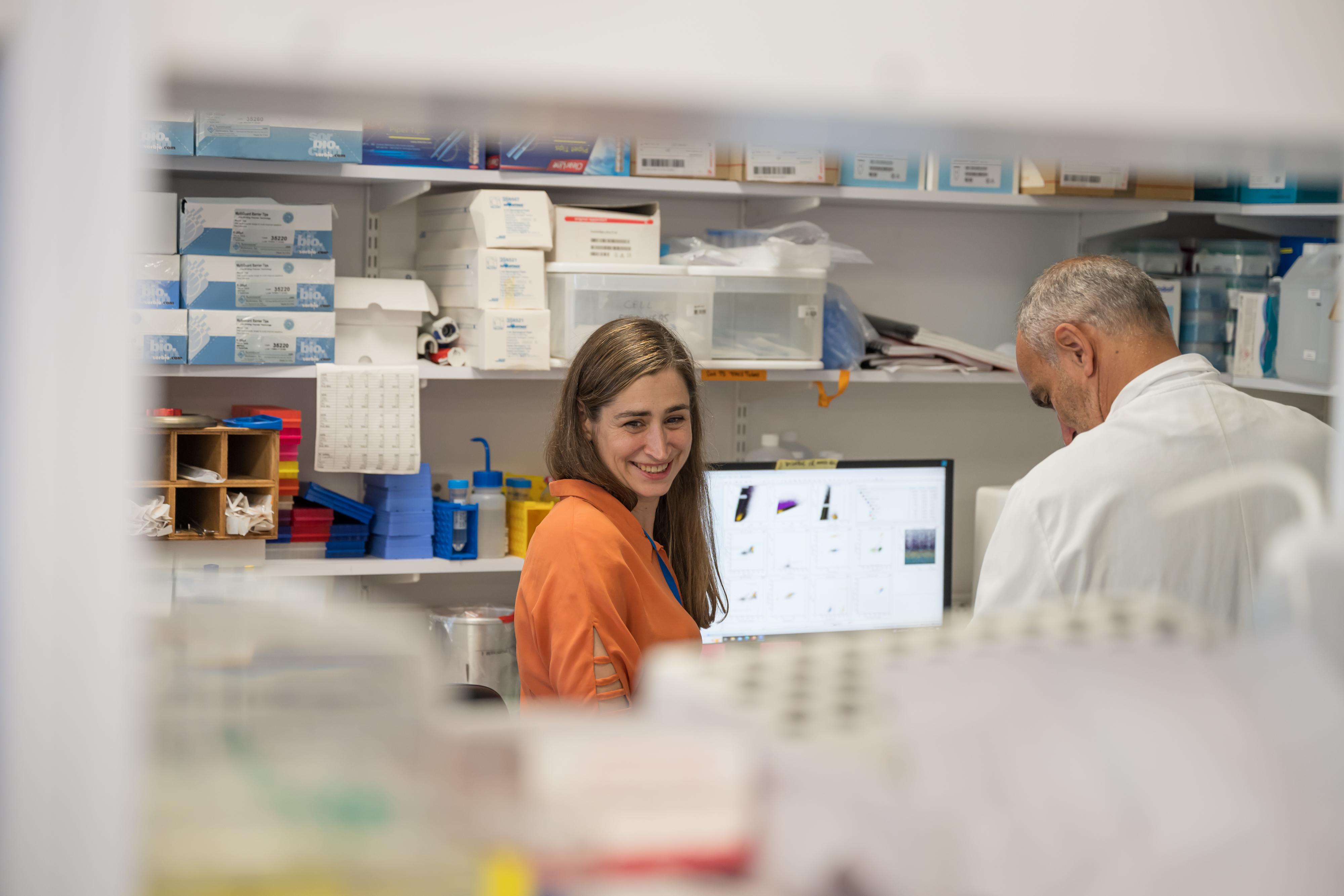It is an extremely rare case, “one chance in 50 million” reported the doctors to Kelly Fairhurst, a British woman who became pregnant with four babies in two different wombs.

- The young woman has a didelphic uterus, a heart-shaped uterus with two distinct or partially separated cavities that do not come together during pregnancy
- After 19 weeks of pregnancy, the four future babies are in great shape
It is a very rare case of congenital malformation called uterus didelphe which affected Kelly Fairhurst, a young British woman of 28 years. Already a mother of two, she learned she is pregnant with four more babies during an ultrasound performed when she was 12and week of pregnancy. “The doctors told me that this kind of case has a one in 50 million chance of happening.“, she related in the newspaper The Sun.
Healthy future babies
The incongruity of this pregnancy lies in the uterus of the young mother, already the mother of two children, which is a didelphic uterus. This results in a heart-shaped uterus with two distinct or partially separated cavities. This hereditary formation affects between 0.1% and 0.6% of women. During a “normal” pregnancy, the Müllerian ducts resorb between the 10and and the 17and week, to form a single uterus which constitutes the fallopian tubes. In the case of a didelphic uterus, the ducts remain separate. “When I delivered my second baby I was told that I had a didelphic uterus that was not fully formedsays Kelly Fairhurst. So I was really surprised when I was finally told that I had not one, but two wombs..”
Parents worry about the health of their future children, but after 19 weeks of pregnancy, the future babies seem to be doing very well. The risk of miscarriage or premature birth actually increases when a woman has this particularity, as Kelly Fairhurst experienced during her two previous pregnancies where her children, now aged 4 and 3, were born with respectively eight and six weeks in advance.
Tell women with a didelphic uterus that they are not alone
Other questions that arise are whether the woman will have one or two deliveries on two different dates and whether the sets of twins will be identical or not. A similar case has already happened in Bangladesh where a woman with a didelphic uterus gave birth to three babies in the space of a month, with the first arriving in February and the twins arriving just 26 days later. late. Regarding the twins, everything is possible, it is currently impossible to know if they will all be identical. “Eggs and sperm can split in two at a very early stage of development, so it depends on which egg attached to which uterus”, describes Asma Khalil, an expert in obstetrics at St. George’s Hospital in London, on the newspaper’s website The Guardian.
Kelly Fairhurst decided to share her experience to let women with a didelphid uterus know that they are not alone. “I wanted to be able to talk to people who have gone through the same situation as me to find out the outcome of the pregnancyshe explains. Some people, like me, are completely unaware that they have a didelphic uterus. It is common to have miscarriages with didelphus, so maybe there are women unaware that this may be the reason..”
.

















